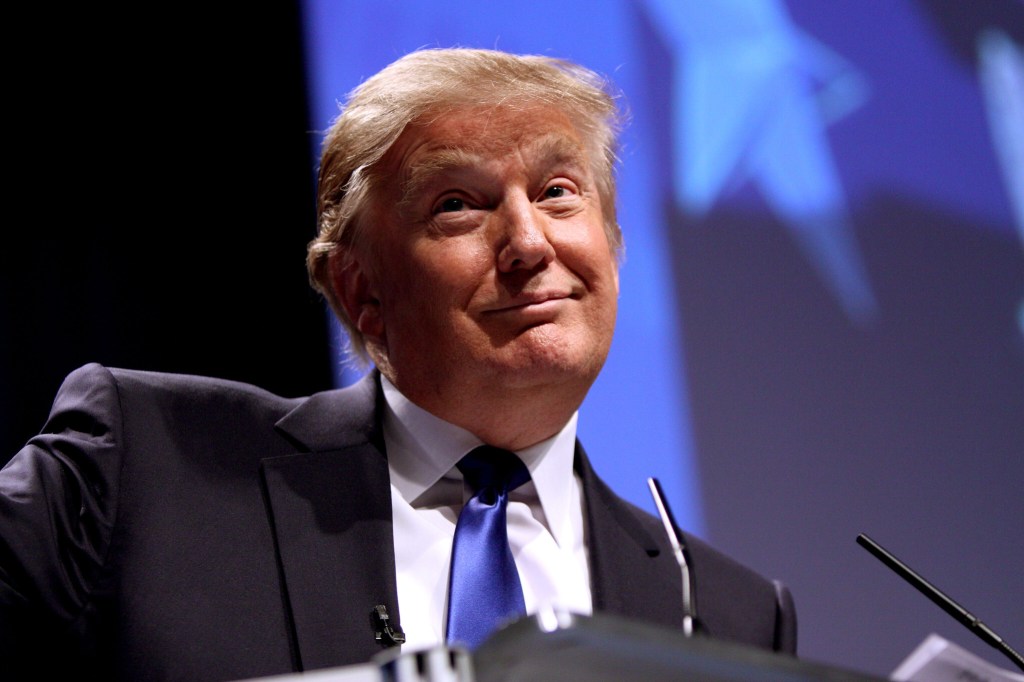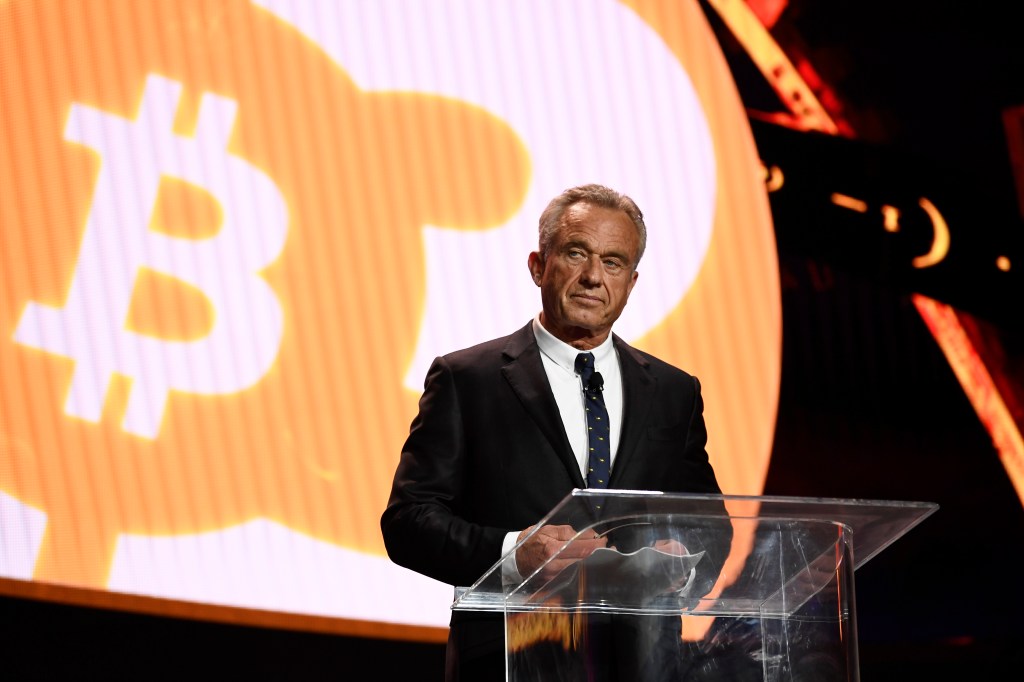A data broker that tracked Black Lives Matter protesters also tracked the locations of Evangelical Christians on election day 2016 using their cell phones and used that data to help push get-out-the-vote messaging, according to the company’s own CEO.
Mobilewalla, a data broker headquartered in New York City, purchases and collects location and other personal data about cellphone users, and then sells it to companies for marketing purposes. On Thursday, BuzzFeed News reported that Mobilewalla had tracked the almost 17,000 protesters who went to the streets to join Black Lives Matter demonstrations in the last month, a research project that Sen. Elizabeth Warren described as “shady.”
Videos by VICE
In 2017, the company’s CEO Anindya Datta revealed another controversial project. During an overlooked podcast interview, Datta said Mobilewalla “played a key role in the U.S. presidential election” in 2016.
“We were a very key data arm for one of the major parties,” Datta said, refusing to specify which one of the two parties.
Datta explained that they created “segments” of Evangelicals and tracked their location in real time on election day. The firm, according to Datta, used that data to tell Evangelicals to vote if their phone hadn’t been seen near a polling place on election day.
“The biggest amount of money we generated in the election was for what is known as Get Out The Vote—the GOTV part of the election. So what we did for this particular party, who spent way less on feet on the street than the other party, we were monitoring every polling booth,” Datta said. “Every polling location in a certain number of states and we were telling the ground team who showed up to vote and who hadn’t yet.”
BuzzFeed’s reporting and this revelation show just how pervasive the use of cell phone location data can be, and how specifically it can be targeted. As Motherboard has shown many times, the market for cell phone location data is vast and largely unregulated. The data itself can come from apps that track GPS location; in some cases, location data can come from cell phone companies themselves.
Mobilewalla boasts that it can track “1.6 billion devices” in more than 35 countries. It says that it can create “persistent customer identities” and track their visits to a specific location over time, as well as segment that audience according to interests, age, and other demographic information. It claims it can also track relationship status, cost of their device, “gamers,” and other highly specific data.
Datta said that the company identified people as Evangelicals by tracking their church attendance over the course of six months preceding the election.
“Christianity has like 290 denominations, like 17 of which I believe are Evangelical,” he said. “The definition we were given was, take a swing state like Florida. There are 1,400 Evangelical churches. So to be an Evangelical Christian, you need to have been observed in an Evangelical church at least once a week for the last six months.”
Datta said he was “very tempted” to say whether they worked for the winning or losing side of the election, but declined to specify. He did, however, say that “the client was very happy.” Circumstantial evidence and common sense suggests that a get-out-the-vote campaign focused on Evangelicals would be in service of Republican candidates. Exit polls showed that 81 percent of Evangelical Christians who voted in 2016 voted for Donald Trump; just 16 percent voted for Hillary Clinton, according to Pew.
Do you work or did you use to work for Mobilewalla or another location tracking company? We’d love to hear from you. You can contact Lorenzo Franceschi-Bicchierai securely on Signal at +1 917 257 1382, OTR chat at lorenzofb@jabber.ccc.de, or email lorenzofb@vice.com
In a statement, MobileWalla spokesperson Andrea Kaplan contradicted the CEO and said that the company works with political ad agencies that support both parties.
“Mobilewalla’s core business is to provide consumer data and analytics primarily to B2C enterprise companies and advertising agencies,” Kaplan said. “Our products are used for marketing use cases—to acquire and retain customers. We do not work directly with either political party or with any political campaigns. We have worked with political advertising agencies that support candidates from both parties. On occasion we have been approached by political advertising agencies who are interested in our audience segment data, this is a very small part of our business. We have no political leaning or agenda and we are non-partisan in who we work with.”
Regardless, Mobilewalla appears to have several clear links to the Republican party.
Public records from the Federal Election commission show that Mobilewalla was hired during the primaries to oppose Donald Trump by the Ted Cruz campaign, as well as the Enterprise Freedom Action Committee, a right-wing organization. Mobilewalla was also hired by several other Repiblican candidates in 2016, and it also received a payment of $186,050.00 in 2018 from the American Potential Fund, a PAC that supported the Republican Florida senator Rick Scott.
John Scott-Railton, a senior researcher at the Citizen Lab, noticed the podacast and tweeted it out on Thursday.

Kaplan said that MobileWalla is not working for any campaign this year. However, the company has a spinoff called MWPolitical, which appears to be Mobilewalla’s political arm.
During the 2016 election cycle, Jim Valentine, who was then Mobilewalla’s vice president of political and advocacy, “created political channel for Mobilewalla (Aug 15), including partnerships with Presidential primary candidates and various SuperPACs. Managed digital political campaigns for over 100 candidates at the national & State levels,” according to Valentine’s LinkedIn account.
Valentine is now the founder and CEO of MWPolitical which describes itself as “a full service digital/TV media placement agency. We specialize in programmatic placement (reselling Mobilewalla data), TV planning and placement, and SMS/MMS campaigns,” according to his LinkedIn. The company’s official site used to say MWPolitica “impacted hundreds of Republican ra[ces],” according to a Google search result. (The current website does not specify that the company worked for Republican candidates.)

Valentine donated $1,000 to the National Republican Senatorial Committee, according to public records.
In a phone call, Valentine said he had no knowledge of Mobilewalla’s role in the 2016 elections. He also said that his new company MWPolitical, is not legally tied to Mobilewalla.
“I exclusively work with the Republican party although I wish that wasn’t the case,” he said.
The Trump campaign did not respond to a request for comment. The White House declined to comment and referred questions to the campaign.
Subscribe to our new cybersecurity podcast, CYBER.




